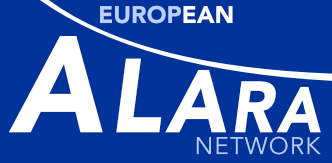Author: A. Schmitt-Hannig (BfS, Germany)
The 4th International Conference on Education and Training in Radiological Protection (ETRAP), organised by the European Nuclear Society (ENS) in cooperation with the International Atomic Energy Agency (IAEA) and hosted by Portugals Instituto Technologico e Nuclear (ITN), was held from 8 - 12 November 2009 in Lisbon. The Conference was attended by more than 120 participants from 26 countries. Experts from leading European and international organisations, universities, research institutes and industry representatives shared their experiences in delivering education and training in the field of radiological protection during 8 sessions for oral presentations and two poster sessions.
The Setting the scene session featured five keynote speakers from the European Commission (EC), the International Radiation Protection Association (IRPA), the IAEA and the Organisation for Economic Co-operation and Development Nuclear Energy Agency (OECD/NEA), respectively.
S. Mundigl, EC Directorate-General for Energy and Transport, introduced the revised European Basic Safety Standards (BSS) with a special focus on education and training requirements. The results of the three EUTERP workshops have been accepted and will be considered in the new BSS. A. Jouve, EC Directorate-General for Research, presented the EURATOM framework programme for nuclear research and training activities and E. Gallego introduced the IRPA strategic plan for the next 10 years. He stated that the IRPA will encourage activities to attract young people to the profession and young professionals to the IRPA congresses. J. Wheatley highlighted the IAEAs achievements in the field and its future focus on the education and training in radiation protection. IAEA-run post-graduate education courses in radiation protection and safety of radiation sources are open to young professionals with a science/engineering degree. U. Yoshimura, OECD/NEA, raised the issue of the retention of skills and competence in radiation protection.
Very informative presentations were given on the ENETRAP project, the EUTERP platform, the role of the Federation of Independent Organisations of Medical Physics in Europe (EFOMP), the European Nuclear Education Network Association (ENEN) and the Cooperation for Higher Education on Radiological and Nuclear Engineering (CHERNE).
In the closing session, the achievements of the past four years with regard to education and training were summarised. A considerable move forward has been made in the areas of clarification and harmonisation with the two projects: EUTERP and ENETRAP. The Qualified Expert concept has been reviewed and the definitions for Radiation Protection Expert and Radiation Protection Officer have been developed. Three workshops have been organised and all participants gave a commitment to a harmonised approach to radiation protection training. Ongoing international projects and other activities show that the level of international cooperation and commitment to achieving this goal is evolving. Network structures can meet the needs for ongoing exchange of information on training activities and developments. A rationalisation of the existing networks is necessary to develop a common radiation protection and safety culture and apply a multidisciplinary approach to radiation protection training. These points will be included in a conference declaration, which will be issued later.

